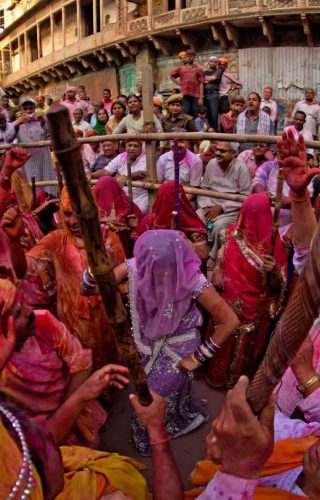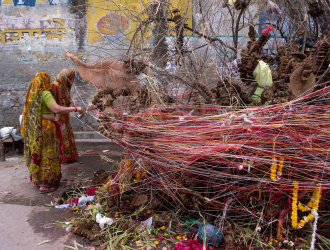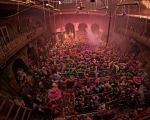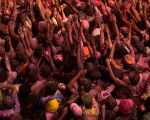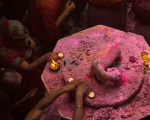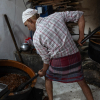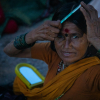As a festival Holi has many significances, the most prominent being the end of winter. It is also identified as a festival that celebrates good harvests and fertility. Holi is also a way to enjoy spring’s abundance of colours and to bid adieu to winter, a festival to claim intimacy and end conflicts. Celebrated after the full moon in the month of Phalgun (end-February or mid-March), Holi is associated with different legends in different parts of India.
Celebrations start the night before Holi, with a Holika Dahan and the next day is celebrated with colour as Rangwali Holi. The myth associated with the festival relates to Vishnu and his bhakt Prahlada. According to the Bhagavat Purana, King Hiranyakashipu wanted to be immortal and after a long tapasya he was granted a boon by Brahma. He was bestowed five special powers: he could not be killed by a human or an animal, he could not be killed indoors or outdoors, neither in the day nor at night, neither by astra nor by any shastra, and neither on land nor in water or air. These boons made King Hiranyakashipu arrogant and he issued a decree that only he be worshipped as God. His son Prahlad refused to worship his father and continued to worship Lord Vishnu. This angered Hiranyakashipu and he made various attempts to kill Prahlad. During one attempt, he called upon his sister Holika for help. She had a special cloak that protected her from fire. Hiranyakashyapu asked her to sit on a pyre with Prahlad, with the intent of killing him. But as the fire billowed, it burnt Holika and saved Prahlad.
So Holika dahan is symbolic of the victory of good over evil. Hindus believe that fire has the power to purify and cleanse, so it is not surprising that the spring festival begins with Holika Dahan (burning of Holika). The farming communities celebrate this day to mark an end of winter darkness. The next day is celebrated as Rangwali Holi, when people smear each other with colour and visit families and friends to share Holi delicacies.
Holi as a festival has been traditionally observed by the non-Hindus as well, and in recent years it is celebrated in different parts of Europe and America. Holi, a celebration of a season, is a secular festival that transcends narrow boundaries of religion, caste, creed, class and gender. It is a day to celebrate diversity.
